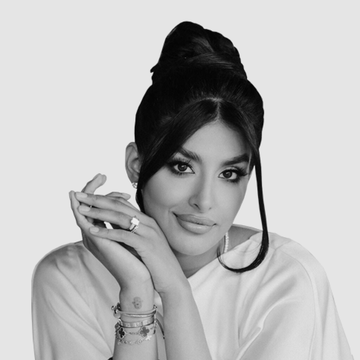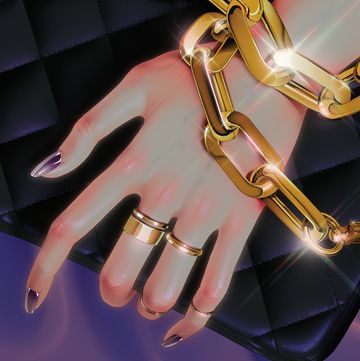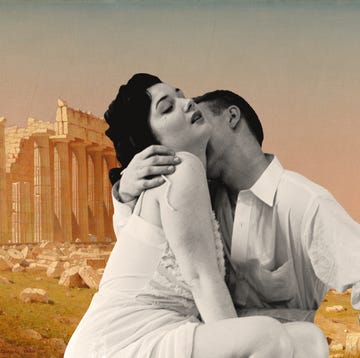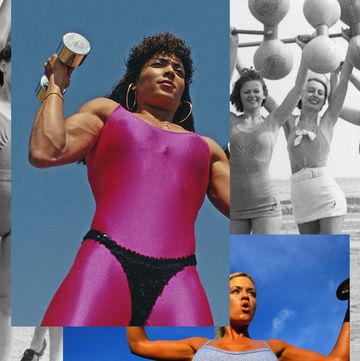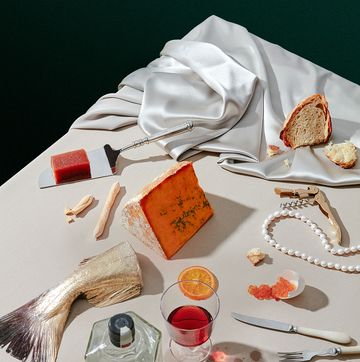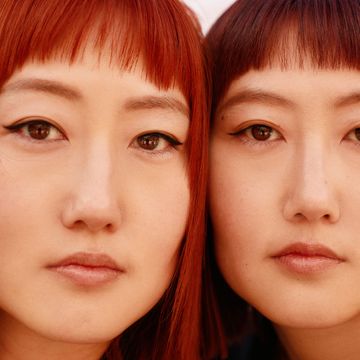The summer I was 20 years old, I worked as an intern in a lawyer's office in Houston. To get to work, I rode the bus every day from the area around Rice University, where I lived, to the office. I didn't have a car and relying on public transportation that summer gave me a unique understanding of urban problems: the slow crawl of traffic congestion, the erratic city planning that placed businesses across the highway from residential areas, the lack of sidewalks.
A mother and her two-year-old daughter often rode the bus with me. The mother was young, younger than I was, and the daughter had large, solemn eyes and dark hair. She was always well-dressed, with bows in her hair and clean but faded clothes. I often wondered about this tired-looking mother and her daughter. What were their lives like? Did she have a relationship with the father? Did she love him? Did she know what love was and could she tell me?
These questions resonated with me at that time because I was involved in an abusive relationship with a man. We met in college at a party, and the first night I went back to his apartment. I realized once I was there that I didn't want to have sex with him. I pushed him away and cried, but he was angry that I had changed my mind and accused me of being a tease. In the paradoxical way these things play out, I left him my number before I went home.
Over the next week, though, I obsessed about why he wasn't calling me or what I had done wrong. I began to feel that perhaps I had been unfair. Eventually, he did call, and we began to see each other. By the summer, we'd been dating a few months. His favorite hobby was to drink to excess and then hit me when I begged him to let me drive us home. He made fun of me to his friends and told me that I would never forget him. When we had sex, which we eventually, inevitably did, he told me that other women were much better than I was.
One night we were out at a club where I flirted with some other men. He grew so angry that he pushed me into a table, hard enough that the bouncer kicked us out. As he started to pull out of the gravel parking lot, I asked him to let me drive. I opened the door to pretend to step out, hoping he would stop the car, but he hit the gas and pushed me out so that I landed face-down on the gravel.
Over time, I developed odd outward signs that something wasn't right, even if I wouldn't fully acknowledge it to myself. I pulled out chunks of hair and filled the sink with them. I developed a hypersensitivity to touch that made it hard for me to sleep. I was very concerned about stepping on pavement without shoes because I had heard you could get hookworm that way. I checked the soles of my feet a lot. My mother asked if I was feeling sad because I sounded funny on the phone. No, I told her, I wasn't sad. I wasn't anything. I had a hard time looking at myself in the mirror.
In an abusive relationship, you learn not to think; you are part animal, trying to survive, like something feral, and this defensiveness seems to prevent the memories from sticking, too. This, I think, is wise and for the best. But I do remember the times that we had sex without protection, even though I knew it was a bad idea. He told me that I was too anxious, that it would be fine, and I wanted the sex to be over with more than I wanted to protest. A friend told me, by way of comfort, that it wasn't very easy to get pregnant, and that some people struggled for years to conceive.
My period was one week late and then another. I didn't tell anyone. I rode the bus past drugstores, but I didn't get a pregnancy test. I didn't want to know. Or if I did think about it, I romanticized it, dwelling in my own tragedy. To be honest, it felt better to think about something other than my rotten relationship for a while.
The mother and daughter on the bus took on new meaning. Having a daughter might not be the worst thing, I thought, someone to love me unconditionally. But then I remembered that the child would be his.
I vowed then that I would not have his child. This was a year before the morning-after pill would be available, so that wasn't an option. But there were places in Houston to get an abortion. I figured that getting one wouldn't be that hard, and began to set some money aside. The abortion laws in Texas in 1998 didn't require parental consent (that wouldn't happen until the early 2000s), so it was less a matter of legal difficulty than combating odd cultural myths that were particularly entrenched in that time and place: in my college psychology class, for example, I'd had to debate whether "post-abortion syndrome" existed.
Today, however, things are different—at least for women in my specific situation. States like Texas have slowly begun to use legislation, like the TRAP laws currently being challenged in the Supreme Court, to close clinics. Where would I have ended up if I was currently a pregnant 20-year-old living in Texas? Would I have been able to escape? My decision not to have his child was probably the single healthiest thought I had at the time. I couldn't quite think of a way to get myself out of the relationship at that moment, but I knew enough not to have his child.
I got my period a few weeks later; I assumed that the delay was from stress and anxiety, not pregnancy. But I didn't forget the feeling that having that abortion was the only way I would ever have a hope of feeling safe and whole again.
It took time to get out of that relationship. While many of my friends couldn't really understand the dynamics, they answered the phone when he called (this was a pre-ubiquitous-cell-phone era) and steered me away if they spotted him on campus. I think that my situation made them uncomfortable, but they stuck by me, and for that I am grateful.
I took the LSAT, I went to law school, and I left him behind. I don't know where he is and don't want to know. Once I became a lawyer, I represented women in custodial battles against their abusive exes, the women who could have been me.
Jessica Pishko is a writer in San Francisco.



